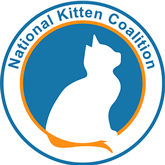G
Gastrointestinal (gas-troh-in-tes-tuh-nl): Part of the digestive system, the gastrointestinal tract (GI tract) includes the mouth, throat, esophagus, stomach, small and large intestines, rectum and anus
Gestation (je-stay-shun): The period of pregnancy from conception to birth, which averages 65 days for queens (unspayed cats)Giardia (jee-ahr-dee-uh): A single-celled, protozoan organism that causes severe gastrointestinal disease when ingested from infected feces themselves or soil and water contaminated by the organism
Gingiva (jin-juh–vuh): The membrane around the teeth and the lining of the mouth, also known as the gums, which should be pink and moist
Gingivitis (jin-juh-vahy-tis): Inflammation (swelling) of the gums, which is the immune system’s reaction to bacteria and plaque under the gums, accompanied by redness, bleeding and pain
Glaucoma (glaw-koh-muh): A painful condition of increased pressure within the eyeball, which damages the optic nerve and gradually leads to blindness
Gram: A metric unit of weight, with 28 grams equaling an ounce, that provides a more accurate weight for small animals such as kittens
H
Hematemesis (hee-muh-teh-muh-suhs): The act of vomiting blood which 1) if new or recent is bright red or 2) if old and partially digested resembles brown coffee grounds
Hematoma (hee-ma-toh-muh): A collection of blood, usually clotted, in a tissue or organ, caused by a break in a blood vessel, which may occur if an ear flap is injured
Hematuria (hem-uh-toor-ee-uh): The presence of blood in urine, defined as gross hematuria when seen with the naked eye and occult when only seen with a microscope
Hematochezia (hee-muh-toh-kee-zee-uh): The presence of bright red blood in the feces, which may indicate irritation or inflammation in the lower gastrointestinal tract (colon and rectum)
Hernia (hur-nee-uh): The protrusion of an organ or tissue through an opening in its surrounding walls, especially in the abdominal region, such as an umbilical hernia in kittens caused by the queen biting the cord too close
Heterochromia (het-er-uh-kroh-mee-uh): A condition that causes a cat’s eyes to be two different colors, more commonly seen in white cats such as Turkish Vans
Heteropaternal superfecundation (heh-trow-puh-tur-nl soo-per-fee-kuhn-dey-shuhn): The fertilization of two or more ova by separate acts of conception with two or more male cats during the same heat cycle of a queen, which accounts for litters having multiple fathers
Hyperthermia (hahy-per-thur-mee-uh): An elevation in the body’s core temperature, which may be caused by exercise, excessive heat, reactions to drugs or poisons and medical conditions
Hypoglycemia (hahy-poh-glahy-see-mee-uh): An abnormally low glucose level in the blood, which may occur when kittens don’t get enough food per meal or have been without food for several hours
Hypothermia (hahy-puh-thur-mee-uh) : An abnormally low body temperature, which is a common risk especially to orphaned neonatal kittens who are unable to shiver or regulate their body temperature
Hypoxia: (hahy-pok-see-uh): Low oxygen level in blood and tissues

